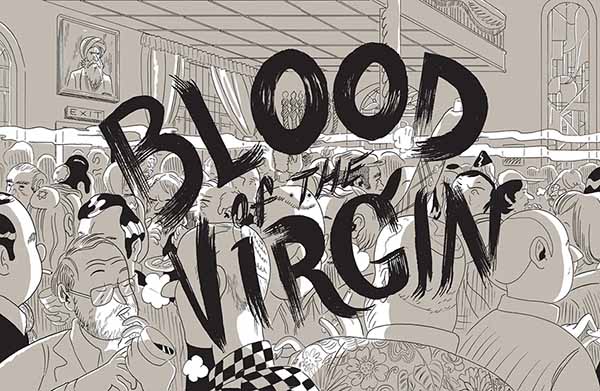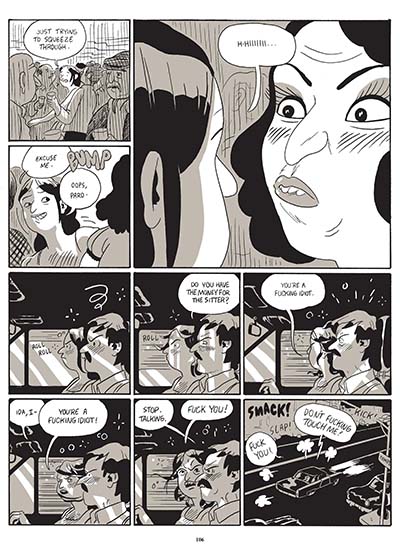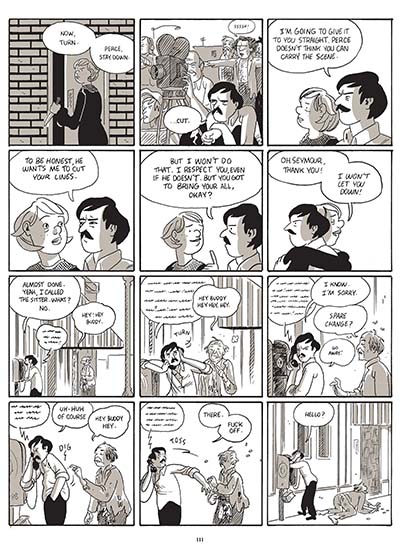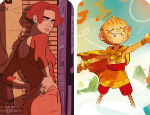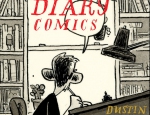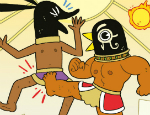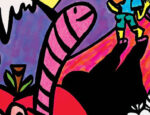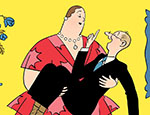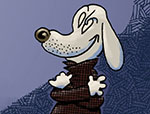Some books carry with them the palpable weight of their creator’s lived experience. One can sense the ambition, a reaching for something big, or the effort poured into getting all the nuances right, tempered by a hard-won authenticity that leaps from every page. Blood of the Virgin does all of this and more, which is surprising when one finds that although Sammy Harkham was born in Los Angeles — where his tale is set — he moved with his family to Australia at age 14, returning only years later with his wife and children. It becomes quickly obvious that LA was a city he never really shook off.
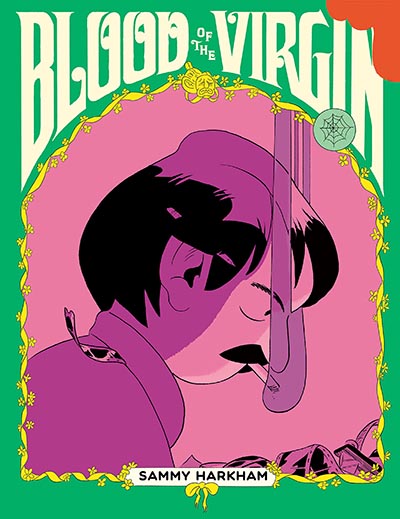
Set in the early 1970s, it began as a story in the comic book series Crickets, playing out steadily over 14 years before coming to rest in this new, collected format. At the heart of it is 27-year old Jewish Iraqi immigrant Seymour, whose job as a movie editor allows Harkham to dip into the seediness that was such an intrinsic part of Hollywood in those years. He does this with finesse because it is only in fleeting moments — when Seymour stumbles into the wrong room at a party, for instance, and confronts a cast of debauched characters — that one senses the wider world in which this hero is but a cog.
And yet, it is precisely by focusing on a bit player, this seeming non-entity at the periphery of a vast machine, that Harkham manages to raise big questions about race and identity, and how our personal histories cast shadows on where we are trying to go.
Harkham’s father was from Iraq and ended up as a refugee in Israel, while his mother came from New Zealand, a background he seized upon as a jumping off point for his ruminations on the meaning of family. Seymour walks a path made familiar by outsiders like him, all drawn to a mythic big screen version of the American dream. Like them, he must find a way of coping with loss before reconciling himself to a reality of compromised expectations at odds with how he hoped things would turn out.
Like Harkham’s mother, Seymour’s wife Ida comes from New Zealand too, carrying the burden of her own tragic past while trying to fit into a country that has always been suspicious of newcomers. There is warmth between Seymour and Ida in moments they share with their baby, but also a tension linked to the radically different lives they lead. While he pursues the glamour of Hollywood in a misguided attempt to bec09ome a filmmaker, she is condemned to the limiting role of housewife that was more norm than expectation at the time. Weaving in and out of their individual narratives are other intriguing folk all etched with great empathy by a writer who clearly enjoys getting under their skin.
Then there is the art itself: Harkham’s wordless panels often saying as much or more than his pithy dialogues. There is sensitivity with which empty space is deployed within these panels, along with the use of colour to demarcate not just this comic’s evolution over a decade, but to signify a sense of possibility just beyond Seymour’s grasp. One quick burst over a few pages, and it’s gone.
On the one hand, Blood of the Virgin is a cautionary tale about how living in fantasy can upend ordinary lives in that specific city. On the other, there is something quintessentially human about its canvas that depicts failings we all have, along with trials by fire we must all endure until we arrive at our own versions of what life is about. This is a book that took 14 years to create. It is destined to be discussed and pored over for far longer.
Sammy Harkham • (W/A) Pantheon, $41.00
Review by Lindsay Pereira





